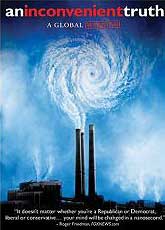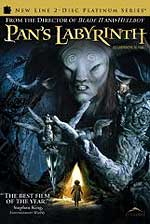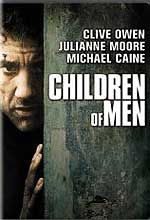Loren Rosson published his list of The Top 10 Films of 2006 a while ago over at the Busybody. I quite like his list. While I have noted some of my favourite movies of 2006 in my Third Annual Ralphies – Second Annual Codex Edition (Best of 2006) post, as well as in the commentary to Christianity Today‘s Top Ten Films of 2006, I haven’t published a full top ten list — let alone a detailed post like last year’s Essential Films of 2005 for Theologians. This negligence on my part is for a variety of reasons, including needing to catch up with a few films on DVD — like Pan’s Labyrinth — before settling on my list. Either way, seeing Loren’s list spurred me on to finally create this year’s instalment of “Essential Films for Theologians.”
I should confess a couple limitations with this list. First, and quite naturally, it only contains films that I have personally viewed. My list of “Films I should have viewed before making my list” include, critically acclaimed films like The Queen (Stephen Frears, 2006; Buy from Amazon.ca | Amazon.com), L’enfant (Jean-Pierre and Luc Dardenne, 2006; Buy from Amazon.ca | Amazon.com), among others. Second, before anyone comments that I clearly have no sense of what makes a good film, note that these are top films “for theologians,â€? i.e., they are films that raise theological questions or issues. They are not necessarily great films or the best films of the year; they have weaknesses and shortcomings. That being said, I do think that most if not all of them are among the best of the year and are certainly worthy of thoughtful viewing.
So, drum-roll please, here is my list of “Essential Films of 2006 for Theologians” in all its glory:
- 10. Jesus Camp (Heidi Ewing and Rachel Grady, 2006; IMDB; Buy from Amazon.ca or Amazon.com). A disturbing and somewhat biased documentary about fundamentalist Christianity in the United States (my Canadian sensibilities cringe when the documentary describes the Christianity in the film as “evangelical”). Not necessarily the best documentary, it raises a whole host of questions about how Christians are perceived by others as well as how to (and how not to) pass on your faith to your children. Another documentary that deserves some sort of notice is Blood of My Brother: A Story of Death in Iraq (Andrew Berends, 2005 [I watched it in 2006]; IMDB; Buy from Amazon.ca or Amazon.com). This is a low-budget film about an Iraqi family dealing with the accidental death of a son and brother by the hands of American troops. It provides a captivating glimpse into everyday life in war torn Iraq and folk Islam.
- 9. Casino Royale (Martin Campbell, 2006; IMDB; Buy from Amazon.ca | Amazon.com). There is not much theology in this film, although it does raise some interesting ethical questions (!). Nonetheless, as a long time Bond fan, I thought it was superb and had to include it on my list. (Following the lead of an article by Umberto Eco, I do use the Bond series as an example of structural analysis of artifacts from popular culture in my religion and popular culture course)
 8. An Inconvenient Truth (Davis Guggenheim, 2006; IMDB; Buy from Amazon.ca or Amazon.com). Science aside, I thought this was a well done and provocative documentary. It is too bad the issue of global warming has become so politicized — is it really such a bad thing to reduce the amount we pollute and consume non-renewable resources? I really don’t understand Christians who object to the basic message of the film, especially since we are called to tend the earth. In the end, this film generates a lot of theological discussion surrounding our stewardship of God’s creation.
8. An Inconvenient Truth (Davis Guggenheim, 2006; IMDB; Buy from Amazon.ca or Amazon.com). Science aside, I thought this was a well done and provocative documentary. It is too bad the issue of global warming has become so politicized — is it really such a bad thing to reduce the amount we pollute and consume non-renewable resources? I really don’t understand Christians who object to the basic message of the film, especially since we are called to tend the earth. In the end, this film generates a lot of theological discussion surrounding our stewardship of God’s creation.- 7. Babel (Alejandro González Iñárritu, 2006; IMDB; Buy from Amazon.ca | Amazon.com). While the concept behind this film is brilliant, the Japan story-line is weak. In the same way that last year’s Crash explored racism, this film explores the question of language, culture, and diversity in a way that will provoke meaningful discussion. Is it possible for humanity to reverse the consequences of Babel? Or is it only as part of God’s redemptive plan that the consequences of Babel will ultimately be reversed?
- 6. Borat: Cultural Learnings of America for Make Benefit Glorious Nation of Kazakhstan (Larry Charles, 2006; IMDB; Buy from Amazon.ca | Amazon.com). While
all parts of this movie is offensive, what is most offensive are the attitudes and behaviours of the non-actors in the film. Racism, sexism, and bigotry is alive and well on planet earth. (I also haven’t laughed so hard in the theatre in a long time, at times uncomfortably, mind you).
- 5. The Last King of Scotland (Kevin MacDonald, 2006; IMDB; Buy from Amazon.ca | Amazon.com). Forest Whitaker deserved all of the awards he won for his brilliant and disturbing portrayal of the brutal Ugandan dictator, Idi Amin. While Amin’s character raises a number of questions, the struggles of Dr. Nicholas Garrigan (a fictional character played by James McAvoy) will likely raise more questions for thoughtful viewers. Another film based on more recent events closer to home is United 93 (Paul Greengrass, 2006; IMDB; Buy from Amazon.ca | Amazon.com). Considering viewers know the outcome of the flight, the director deserves credit for making a suspenseful and very well done film. Good discussion points about self-sacrifice and courage.
 4. The Departed (Martin Scorsese, 2006; IMDB; Buy from Amazon.ca or Amazon.com). This is a great gangster film and all of the actors had great performances, especially Jack Nicholson. The movie raises issues of moral compromise and integrity — but in the end it raises the question of who really are the “faithfully departed.” (I had previously listed this as my number one movie of 2006)
4. The Departed (Martin Scorsese, 2006; IMDB; Buy from Amazon.ca or Amazon.com). This is a great gangster film and all of the actors had great performances, especially Jack Nicholson. The movie raises issues of moral compromise and integrity — but in the end it raises the question of who really are the “faithfully departed.” (I had previously listed this as my number one movie of 2006)-
3. Pan’s Labyrinth [El Laberinto del fauno] (Guillermo Del Toro, 2006; IMDB; Buy from Amazon.ca | Amazon.com). This dark adult fairy tale is amazing in many ways. It interweaves story-lines about a girl growing up amid personal tragedies, including the horrors of the Spanish civil war, and the fantasy world which she created to cope with her life. Visually stunning and skillfully put together — especially how the line between reality and fantasy are blurred. How much is the alternate fantasy world just a creation of the girl’s imagination?
- 2. Little Children (Todd Field, 2006; IMDB; Buy from Amazon.ca | Amazon.com). This is an amazing film; I was so moved by it that I almost think it should be number one. The questions it raises about maturity, sexuality, fidelity, and brokenness are meaningful to contemporary society. This film is an “Eyes Wide Shut” for middle class suburbanites. Another film which I feel compelled to mention, but am not quite sure where to place it is Little Miss Sunshine (Jonathan Dayton and Valerie Faris; IMDB; Buy from Amazon.ca | Amazon.com). This quirky film is about acceptance and family — no matter how much you may act like “little children” (in some ways sends the opposite message as Little Children).
 1. Children of Men (Alfonso Cuarón, 2006; IMDB; Buy from Amazon.ca | Amazon.com). A miraculous birth with all worldly powers pursuing the woman and her child — sound familiar? Beyond the clear allusions to Jesus’ birth, the film also raises questions surrounding God’s work in the world. The film is also visually appealing and contains some amazing camera work.
1. Children of Men (Alfonso Cuarón, 2006; IMDB; Buy from Amazon.ca | Amazon.com). A miraculous birth with all worldly powers pursuing the woman and her child — sound familiar? Beyond the clear allusions to Jesus’ birth, the film also raises questions surrounding God’s work in the world. The film is also visually appealing and contains some amazing camera work.
Some other films I think are worth watching include Hard Candy (David Slade, 2005; IMDB; Buy from Amazon.ca | Amazon.com), The Black Dahlia (Brian De Palma, 2006; IMDB; Buy from Amazon.ca | Amazon.com), Flags of our Fathers (Clint Eastwood, 2006; IMDB; Buy from Amazon.ca | Amazon.com), A Scanner Darkly (Richard Linklater, 2006; IMDB; Buy from Amazon.ca | Amazon.com), Jason Reitman’s Thank You for Smoking (2005; IMDB; Buy from Amazon.ca | Amazon.com). Those favoring a western twang will enjoy The Proposition (John Hillcoat, 2005; IMDB; Buy from Amazon.ca | Amazon.com) and The Three Burials of Melquiades Estrada (Tommy Lee Jones, 2005; IMDB; Buy from Amazon.ca | Amazon.com). While I didn’t think the visually appealing 300 (Zack Snyder, 2006; IMDB; Buy from Amazon.ca | Amazon.com) was top-ten material, it is also worth seeing as long as you don’t expect a historical epic faithful to Herodotus!
I wish I could have included one of the few Bible films released last year on my list, whether The Nativity Story (Catherine Hardwicke, 2006; IMDB; Buy from Amazon.ca or Amazon.com), The Color of the Cross (Jean-Claude La Marre, 2006; IMDB; Buy from Amazon.ca or Amazon.com), or One Night with the King (Michael O. Sajbel, 2006; IMDB; Buy from Amazon.ca or Amazon.com). Unfortunately, all of these films were a disappointment. The Nativity Story was too sentimental (and as a biblical scholar I still can’t believe that in a film trying to present a certain historical verisimilitude, they had the wise men appear at the birth instead of at the house a few years later), The Color of the Cross had great potential but failed to explore racial issues in any meaningful way, and One Night With the King failed to generate any meaningful sympathy for the main characters.
All in all, I am not sure that 2006 was as good as last year for movies.

 8. An Inconvenient Truth (Davis Guggenheim, 2006;
8. An Inconvenient Truth (Davis Guggenheim, 2006;  4. The Departed (Martin Scorsese, 2006;
4. The Departed (Martin Scorsese, 2006;  1.
1.